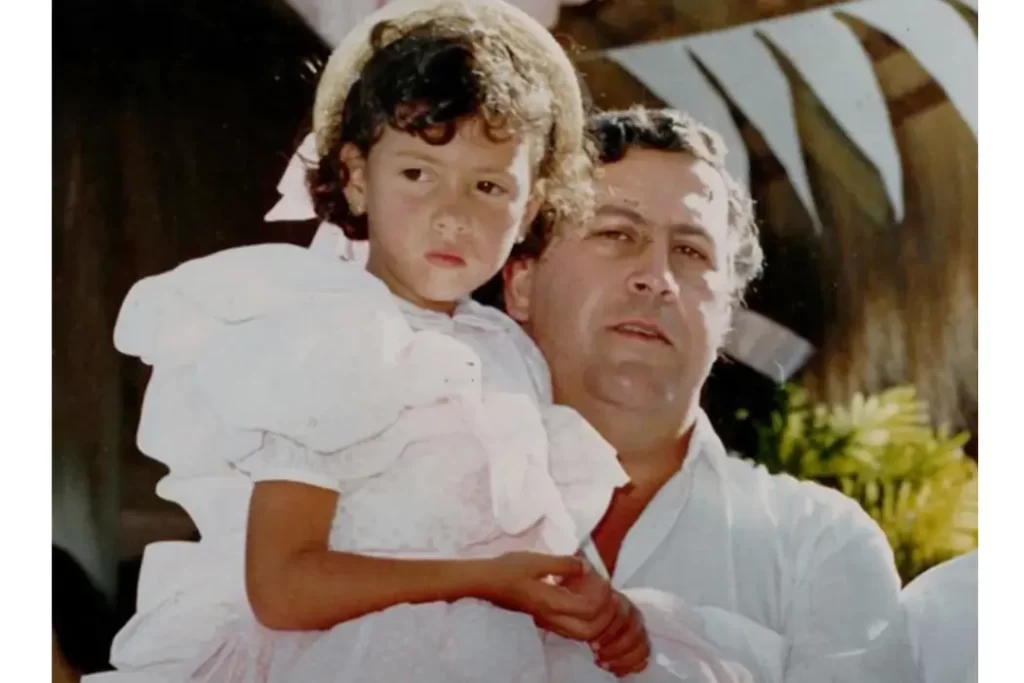Manuela Escobar, the daughter of the infamous Colombian drug lord Pablo Escobar, remains an enigmatic figure often overshadowed by her father’s notorious reputation. Despite her efforts to lead a private life, she has captured the curiosity of many. Exploring the Life of Manuela Escobar provides a unique insight into the intricate journey of the daughter of Pablo Escobar, drawing from a variety of credible sources of knowledge. In this article, we delve into the life of Manuela Escobar, shedding light on her upbringing, challenges, and the legacy she carries.
Exploring the Life of Manuela Escobar
Manuela Escobar lived her life under extraordinary circumstances. Despite being born into a world of power and wealth, her existence was also characterized by the tumultuous criminal activities of her father. Growing up with immense privilege, yet under the constant threat of danger, Manuela’s life was a paradox.
Early Life and Background
Manuela Escobar was born on May 25, 1984, in Medellín, Colombia. Her birth coincided with a period of immense power and influence for her father, Pablo Escobar, who was the leader of the notorious Medellín Cartel. Her early years were spent in luxurious settings, shielded from the outside world. However, the presence of armed guards and the ever-looming danger served as a constant reminder of the darker side of her family’s life.

Net Worth Of Manuela Escobar
Despite her father’s accumulation of billions as the leader of the Medellín cartel, Manuela Escobar’s net worth is relatively modest, estimated to be around $2 million in accordance with prevailing reports. Following Pablo’s demise, his assets were confiscated, leaving the family with a limited share
Following Pablo Escobar’s demise in 1993, his family’s grip on their finances slipped away. It’s unlikely that any of the funds she currently possesses were under her father’s authority. The specialists who took charge overestimated the family’s wealth, pegging it at an exaggerated $20 billion.
Life on the Run
As law enforcement agencies closed in on Pablo Escobar, the Escobar family was forced to flee and live a life on the run. Manuela experienced the stark contrast between her life of privilege and the hardships of being constantly uprooted. The family’s nomadic existence was marked by fear and uncertainty, as they sought refuge in various locations to evade capture.
Impact on Education and Relationships
The tumultuous circumstances surrounding Manuela’s life had a profound impact on her education and relationships. Her formal education was disrupted, and she had to adapt to unconventional learning environments. Additionally, forming lasting relationships became a challenge due to the family’s secretive lifestyle. This isolation took a toll on Manuela’s social development.
Coping with Loss
In 1993, Pablo Escobar was killed, bringing an end to his reign of terror. Manuela, then just nine years old, had to grapple with the loss of her father, who was both a criminal mastermind and a parent. The void left by his absence further complicated her journey of self-discovery.
Reclusive Life and Privacy
Following her father’s death, Manuela chose to lead a reclusive life, far from the public eye. She adopted a pseudonym to shield her true identity and lived a life of anonymity. Her desire for privacy was a response to the intense media scrutiny that had surrounded her family for years.
Moving Beyond the Shadows
In recent years, Manuela Escobar has begun to share her story more openly, allowing glimpses into her life growing up as the daughter of a notorious criminal. She has chosen to use her experiences as a platform to raise awareness about the consequences of organized crime and its impact on families.


